Boating Industry’s 2014 Bold Moves
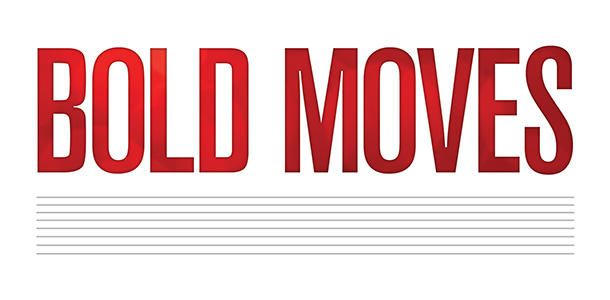
Boating Industry’s 2014 Bold Moves
With a record number of nominations for the Movers & Shakers awards this year, there were many great individuals and companies we weren’t able to recognize as one of our finalists for Mover & Shaker of the Year.
Once again, the team at Boating Industry was wowed by the innovation and leadership in the marine industry. Here are eight more industry leaders making bold moves to advance their organizations and boating, from sales and marketing innovations to revitalizing troubled brands.
Marketing solutions
Mike Alleva
Vice president of Marketing/Client Strategy
Lighthouse Media Solutions
Boston
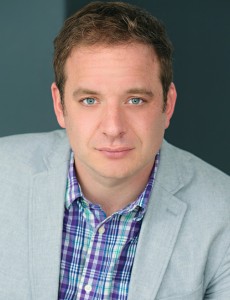
In an industry dominated by small family businesses, it should be no surprise that most boat dealers struggle with marketing. In a small business, marketing all too often falls on the company owner – along with a bevy of other management chores.
That usually means that marketing, especially during the busiest times of the year gets short shrift.
That’s where an outside consultant can make a big difference, and according to many dealers Mike Alleva of Lighthouse is among the best at managing marketing for them.
“Mike has helped us to improve our professional image from that of a mom and pop small business to that of a more progressive current 2014 business,” wrote Stacy Greenwood of Cleveland Boat Center, a Boating Industry Top 100 dealer, in her nomination of Alleva.
That sentiment was echoed by Martin Boyer of Austin Boats & Motors, another Top 100 dealer.
“His team is very progressive, always delivers cutting edge designs and consistently suggests new and unique marketing ideas,” Boyer said. “Mike has been critically important in our mission to increase our brand awareness as well as the quality, image and success of our digital marketing initiatives.”
All told, Lighthouse handles the marketing for more than 10 percent of the 2013 Top 100 dealers and many of them cite the company’s work as key to their success and growth.
Alleva is also a member of the Young Leaders Advisory Council of the Marine Retailers Association of the Americas.
The reason Lighthouse can make such an impact on dealers is that they know the boating industry, said Alleva.
“We can go into a dealership and understand the wants and needs of a dealer and understand the buyer,” he said.
Most dealers understand the importance of marketing – they just don’t have the time to do it, Alleva said. That’s where the Lighthouse “virtual employee” model comes in.
“We’re an extension of the dealership,” he said. “My entire company is your marketing team. We’ll meet with them every day if that’s what they want – it’s up to them.”
Expanding boating
Jaclyn Baumgarten
Founder/CEO
Cruzin
Dania Beach, Florida
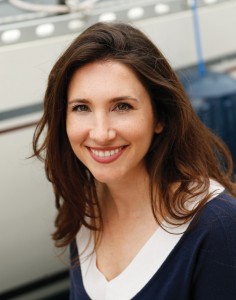
We hear it over and over again in the boating industry: We’ve got to get people on the water.
Cruzin is doing just that by bringing the peer-to-peer business model to boating. Also often referred to as the “sharing economy,” peer-to-peer rentals are exactly what they sound like: the renting of an item (in this case a boat) from the owner to someone else. Cruzin and other companies are betting on the boating industry being ripe for this idea. Airbnb in housing and ride-sharing company Lyft are two of the highest-profile examples.
“Similar to other peer-to-peer platforms, boating deals with high-value assets that people have an attachment to,” said Jaclyn Baumgarten, Cruzin’s founder and CEO.
The service seeks to solve two problems: boat owners who don’t use their vessels enough and those who are interested in boating but can’t afford to buy.
“Boat owners in general don’t use their boats as much as they’d like,” she said. “We keep it very easy to keep boating affordable by helping those owners generate rental income.”
The other side of the equation is that it then opens up boating to a larger audience.
“Boating enthusiasts that don’t own a boat have limited opportunities,” she said. “Unlike charter companies or boat clubs, which are all good for the industry, peer-to-peer offers much more flexibility and diversity.”
What sets Cruzin apart, Baumgarten said, is the insurance program and other protections it has put into place to protect both renters and boat owners.
To protect the owner, renters undergo a two-part Experian screening for identity verification and fraud prevention. Renters are vetted to see what boating experience they have, any training they’ve received and the types of boats they’ve used.
Owners are also personally screened by Cruzin’s insurance company, and need to provide detailed information about their boat, including any previous damage that resulted in an insurance claim. Boats that are more than 10 years old must be surveyed to ensure they are safe and reliable. As part of the rental, Cruzin also provides on-water towing services through BoatU.S.
While many in the industry see peer-to-peer rentals as a threat to boat sales, Cruzin has been making efforts to combat that perception.
Cruzin has worked with the National Marine Manufacturers Association and Recreational Boating and Fishing Foundation on many initiatives, and has partnerships in place with key marina companies like Westrec. The company is also in discussions with manufacturers about ways to work together. Several dealers are now listing boats on the website as well to take advantage of unsold inventory, Baumgarten said.
From dealer to manufacturer
Elias De La Torre III
President
HydraSports Custom/Plantation Boat Mart
Tavernier, Florida
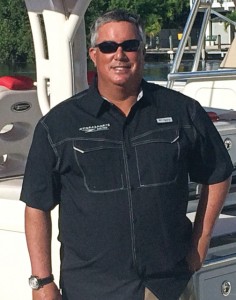
Countless boat brands have died, been resurrected and disappeared again over the last decade. With the frequent ownership changes for HydraSports, it wouldn’t have been shocking to see the 40-year-old fishing brand go the way of so many others.
But Elias De La Torre III was not going to let that happen. As the owner of Florida-based Plantation Boat Mart, De La Torre had been the company’s largest dealer since 1996.
So when MasterCraft decided to sell the brand in 2012, he jumped on the opportunity to take control. Compared to their towboat business, the HydraSports business was too small and difficult for MasterCraft to manage.
“They didn’t know what to do, how to make money with it, so they approached me and asked if I wanted to buy it,” De La Torre said. “I had always had a business plan during the previous bankruptcies if I ever got a chance to buy it.”
That plan included several elements, many of which he has since implemented. The biggest problem, he said, was one he sees with most boat brands: a disconnect between the factories and the retail outlets.
With that in mind, De La Torre has opted to have no dealers, selling the boats through factory outlets only. He believes he can better manage the customer experience that way, as well as ensure profitability.
“There are fewer consumers and they’ve gotten smarter,” he said. “There’s not the volume and the margins to make it” with a dealer network.
To reflect that emphasis on quality, he also changed the company’s name from HydraSports to HydraSports Custom.
In its heyday, HydraSports was building 2,000 boats a year, but only built 231 in 2012, MasterCraft’s last year of ownership. HydraSports Custom built 48 boats in 2013 and 70 this year. De La Torre is planning on 80 in 2015 and the five-year plan is to build 150 a year – and no more.
“I have very high expectations and we’re not going to build unless it has no issues,” he said. “We’re growing the business incrementally to where we need it and that’s all.”
Safety first
Chris Edmonston
President
BoatU.S. Foundation
Alexandria, Virginia
Boating safety has often been something that those in the industry didn’t want to talk about – the idea was that safety didn’t sell and that education wasn’t the responsibility of the dealer or manufacturer.
Luckily, that attitude has changed in recent years, but there’s still work to be done to keep boaters safe, especially if the industry doesn’t want to have regulations forced on it.
The BoatU.S. Foundation, the charitable arm of BoatU.S., has been at the forefront of those educational efforts for years.
“We see educated boaters as being people who are going to get more enjoyment out of their boating trip and more likely to use their boat during the year,” said foundation president Chris Edmonston, who also serves as the chairman of the National Safe Boating Council.
He was instrumental in the early days of online learning for state boating safety courses. As a result of that commitment to online learning, nearly a million boaters have taken a boating safety course for free from the BoatU.S. Foundation.
He has worked with the states and the National Association of State Boating Law Administrators to develop practical common-sense standards for boating education, both online and on-the-water.
Although the foundation has had a NASBLA-approved online course since 1997, it has ramped up its efforts in the last three years under Edmonston’s leadership. The BoatU.S. Foundation has expanded its online offerings to make advanced boating courses available on topics such as weather, navigation and more.
He established partnerships with other groups, including the U.S. Power Squadrons, the U.S. Coast Guard Auxiliary, the Colgate Offshore Sailing School, U.S. Sailing and the American Boat & Yacht Council to help them deliver their educational content over the foundation’s online learning platform.
There’s been a huge shift over the last few years in industry attitudes about safety, as well as the need to work together, Edmonston said. He credits efforts such as the Recreational Boating Leadership Council and Discover Boating for helping to make those strides.
“It’s been a challenge, but the industry is coming around,” he said. “We’re figuring out it’s better if we work together and grow the pie collectively rather than try to increase our slice of the pie. You’ll see more of that collaborative effort come out over the next few years.”
Coming back and starting over
Tommy Hancock and Dale Martin
Owners
Sportsman Boats
Summerville, South Carolina
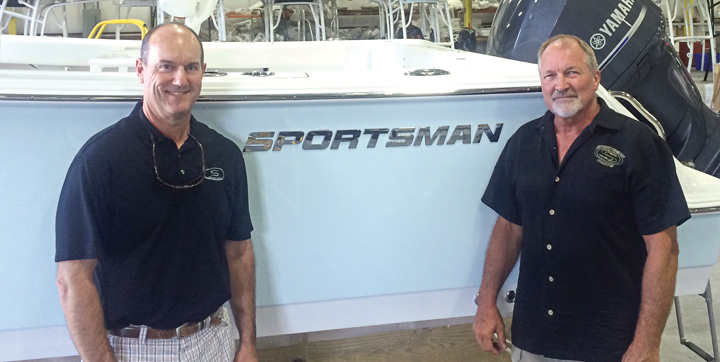
In the early 2000s, Tommy Hancock and Dale Martin sold their respective businesses, with the intention of never coming back to boating.
Flash forward to 2014 and the two former competitors now own one of the fastest-growing companies in the marine industry.
“We both made the comment over the years that we would never get back into boating,” Hancock said. “I think a lot of people when they sell a company make those kinds of statements, without really knowing what they’re saying.”
Hancock, one of the founders of Sea Pro, and Martin, one of the founders of Key West, have been friends for more than 25 years and stayed in touch even after they sold their companies.
Hancock had been looking at several opportunities to get back into the industry when, in 2011, he talked to Martin and found out he was ready to come back, too. They agreed to get together in person to talk about the idea, and an hour into the meeting, the partnership was born.
“This is all either one of us have ever done in our careers,” Hancock said. “We love the industry and we truly missed it.”
The company seems to have certainly hit the market at the right time. Sportsman rolled out its first model in January 2012 at the Charleston Boat Show, a 229 center console. In 2014, the company had eight models, with more planned for 2015.
Sportsman has gone from eight employees in 2012 to 107 as of July, with plans to add 150 more over the next five years. The dealer network has grown from two to more than 50.
The company has already had to move twice to find enough room to keep up with demand. Sportsman is now in the planning stages for adding 117,000 square feet to its current 75,000-square-foot facility.
Hancock credits a great team of employees and the fact that he and Martin were well known in the industry as the key reasons behind their rapid growth.
Although they had considered buying an existing brand, Hancock found those that were available had myriad problems from old tooling to dated models.
With the only value being in potential brand recognition, Hancock and Martin decided to invest in building their own brand.
“We knew we needed to have an innovative product with features and benefits that is competitive with what’s out there, so we would have to retool everything anyways,” Hancock said. “We felt like with our history in the industry, and everything we had done in the past, it would help open some doors, so we wanted to invest that money in building a brand.”
Wake surfing innovator
Rick Lee
President
Fineline Industries/Centurion Boats
Merced, California
Talk about water sports these days, and it’s pretty much a given the conversation will turn to wake surfing. It’s the hot topic in the towboat category, and boat builders are focused on creating the best wake through a variety of new models.
That wasn’t the case just a few years ago, but Centurion founder Rick Lee has been a proponent of the sport for two decades, building the first boat designed for wake surfing in the 1990s.
“While others scoffed, Rick remained true to his mission, knowing that wake surfing would one day be wildly popular,” wrote water sports industry veteran Jim Emmons in his nomination of Lee.
Lee’s a-ha moment came in the early 1990s when he and some of his team were testing the Wave, a new wakeboarding boat on Lake Yosemite. After seeing the wake created by the boat, one of his employees (who had grown up surfing in Hawaii), thought he could surf it.
As a baby boomer, Lee found the sport attractive. It was physically easier and less punishing than wakeboarding or skiing, and the lower speeds and proximity to the boat made it possible to interact with the surfer.
“Our pursuit of a big wake for wakeboarding yielded a big wake for surfing and it was obvious to us this was going to be attractive to baby boomers and families because of the social nature of this and the low-impact nature of it,” he said.
Every major towboat manufacturer is now bragging about the quality of their wake, something many were ignoring just a few years ago. Wake surfing is now the No. 1 pastime for new buyers of towboats, and the industry has Lee to thank for that, Emmons said.
Along with the rest of the industry, Centurion/Fineline has reaped the benefits of that growth in wake surfing. First-quarter sales for Centurion were up more than 60 percent from 2013 to 2014, and production has more than doubled in the past two years.
Sales solver
Matt Sellhorst
Pleasure boat specialist
Hall Marine Group
Lake Wylie, South Carolina
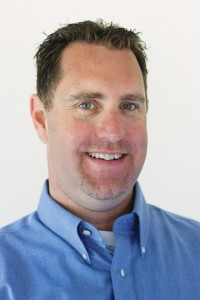
Before he got into the industry in 2009, Matt Sellhorst didn’t know much about selling boats. In fact, he’d never sold a boat before in his life.
Today, he’s one of the top salespeople at Top 100 dealer Hall Marine Group, a six-location dealership in the southeast, and an in-demand speaker and consultant. It’s due to a marketing and sales system centered around video marketing and a no-pressure sales guarantee.
The idea was to present himself as an expert resource on boating without a heavy sales presentation. That started with articles and a boat buyer’s guide, then really took off with the use of video.
Instead of focusing on simple boat walkthroughs or similar topics, Sellhorst’s videos are about him and Hall Marine – and why you should work with them.
“It’s as close as you can get to a face-to-face sales pitch without being face-to-face,” he said. “It happens to me all the time where clients come in and recognize me, so there is less selling involved and they’re ready to roll.”
He brings his family into the videos and talks about the boating lifestyle and how buyers should choose a boat. He points out why he is different, emphasizing his “No sales pressure guarantee.”
“Now I’m not a boat salesman,” Sellhorst said. “I’m Matt, a guy with two little girls, my wife and a dog, and they feel like they know me.”
With his track record of success, Sellhorst is now expanding into work as a coach and consultant for other dealers. He recently released a book, “Marine Marketing Strategies” and offers a free video marketing webinar at HowToSellMoreBoats.com. He will be speaking at this year’s Marine Dealer Conference & Expo in Orlando as well.




